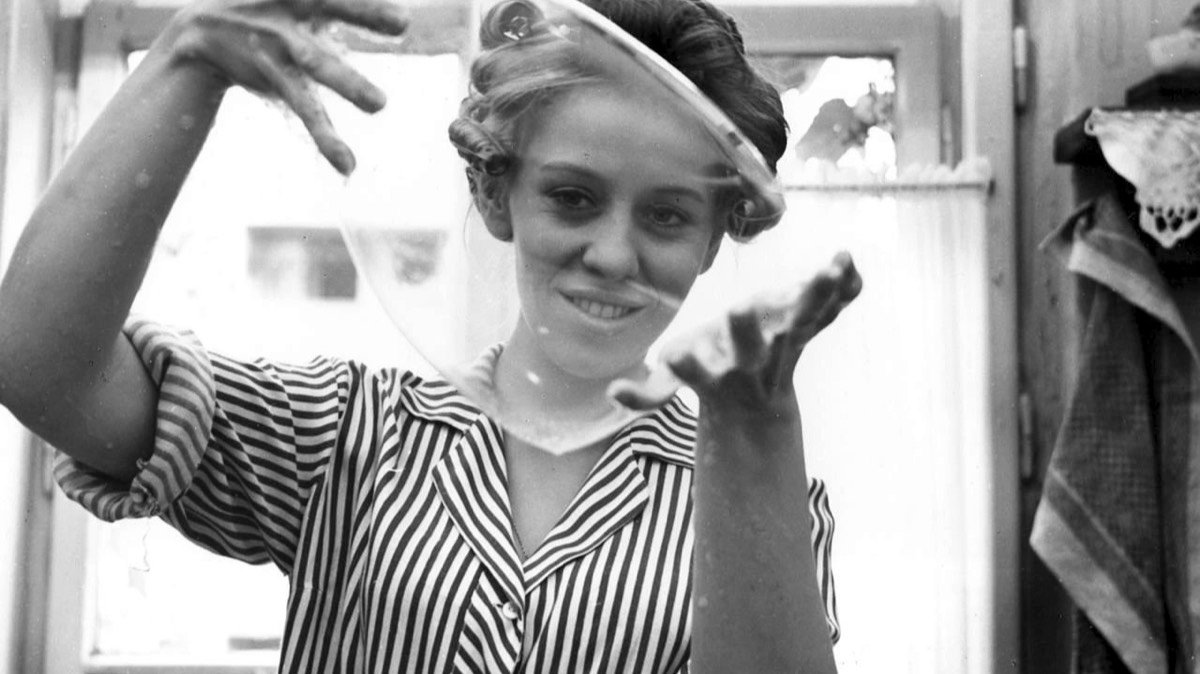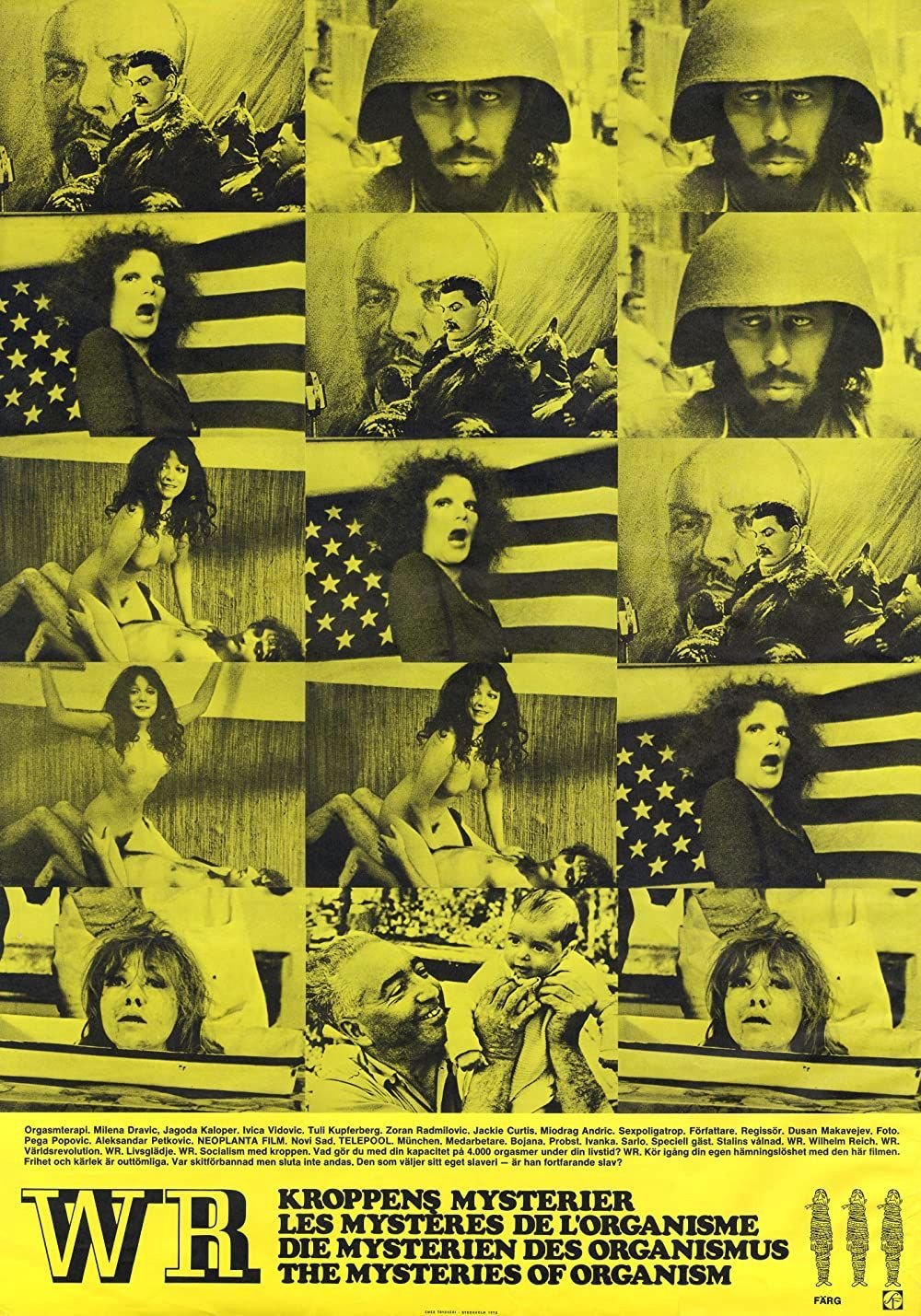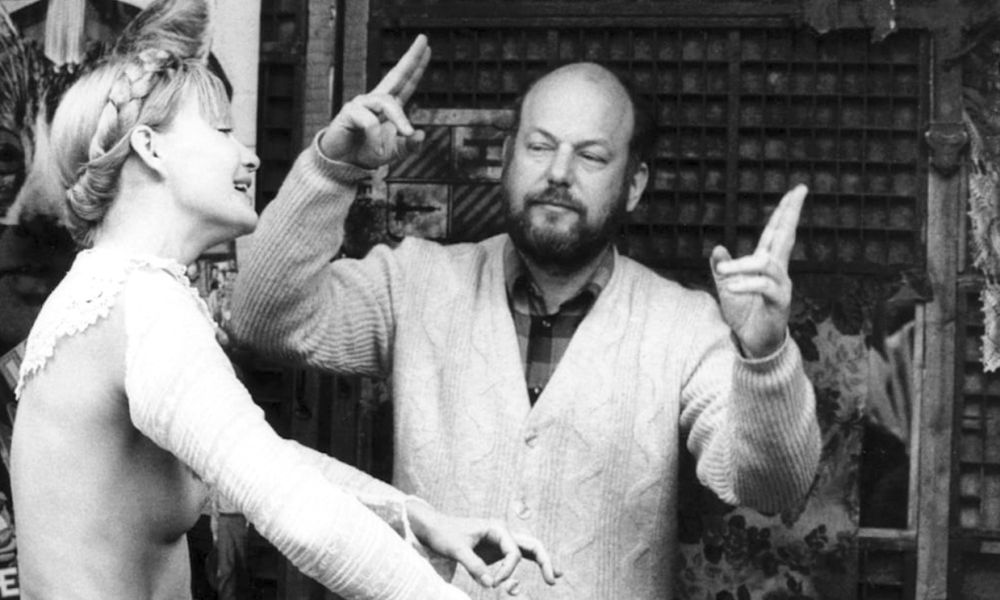"Makavejev's films are among the most immediately striking and original of the post-New Wave generation. His particular contribution to the expressive potentialities of modern cinema has been the development of an increasingly complicated collage method: the juxtaposition of heterogeneous materials to produce complex ironies and ambiguities." - Robin Wood (Cinema: A Critical Dictionary, 1980)
Dušan Makavejev
Director / Screenwriter
(1932-2019) Born October 13, Belgrade, Serbia, Yugoslavia (now Serbia)
(1932-2019) Born October 13, Belgrade, Serbia, Yugoslavia (now Serbia)
Key Production Country: Yugoslavia
Key Genres: Comedy, Drama, Satire, Political Satire, Romance, Avant-garde/Experimental, Sex Comedy
Key Collaborators: Aleksandar Petkovic (Cinematographer), Eva Ras (Leading Actress), Branko Vucicevic (Screenwriter), Ivanka Vukasovic (Editor), Milena Dravic (Leading Actress), Miodrag Andric (Leading Character Actor), Svetozar Cvetkovic (Leading Character Actor), Dragoljub Ivkov (Production Designer)
Key Genres: Comedy, Drama, Satire, Political Satire, Romance, Avant-garde/Experimental, Sex Comedy
Key Collaborators: Aleksandar Petkovic (Cinematographer), Eva Ras (Leading Actress), Branko Vucicevic (Screenwriter), Ivanka Vukasovic (Editor), Milena Dravic (Leading Actress), Miodrag Andric (Leading Character Actor), Svetozar Cvetkovic (Leading Character Actor), Dragoljub Ivkov (Production Designer)
"The most controversial Yugoslav director began his film career with shorts after graduating in psychology and film and writing film criticism. From the beginning, his films were marked with a sweet smell of forbidden fruit, making him one of the most original members of the 'Black Wave'." - Stojan Pelko (Encyclopedia of European Cinema, 1995)
"The only member of the former Yugoslavia’s audacious cinematic waves of the 1960s to become a recognised auteur worldwide, the late Dušan Makavejev was cinema’s greatest ringmaster of the ‘political circus’ – a term he used to describe his most famous film, that once-notorious essay on sexuality and revolution W.R. – Mysteries of the Organism (1971). A learned, oddly loveable provocateur, Makavejev turned political dialectics into three-ring spectacles: in his purest and wildest period of the 1960s and 70s, his films would pursue multiple paths in a dizzying variety of stylistic formats, blending fictional narrative with documentary material, archival footage, professorial lectures to camera, captions and songs." - Jonathan Owen (Sight & Sound, 2019)

Love Affair, or the Case of the Missing Switchboard Operator (1967)
"It is easy to relate Makavejev to Godard or Norman Mailer, on the grounds of his leaping associative technique that goes from the human particular to the social and political pattern, and that also sees political behavior as a response to psychological and sexual frustration. But the enterprising width of Makavejev’s essayist cinema reminds me also of Chris Marker, partly because he works with the same nimbleness and not with the stalking obsessiveness of those romantic dictators, Godard and Mailer… The persistent implication of Makavejev’s work is that man is still a wild, anxious species, all too ready to rest his instinctive energies in such misleading causes as hero worship, the shouting of slogans, and the repressive support of authoritarianism. The relationship between sexual despair and gross political complacency—in both capitalist and Communist countries—is made strikingly clear." - David Thomson (The New Biographical Dictionary of Film, 2010)
"An awareness of cinema’s coercive potential deeply informs Makavejev’s approach to film form, which consequently tends to irruption and discontinuity, frequently drawing attention to its own representational strategies, willfully derailing its narrative trajectories, and actively decentering the viewer." - Lawrence Garcia (MUBI Notebook, 2020)
"Romances and comedies come no blacker than those made by this controversial Yugoslavian director: his films, though few in number, are almost guaranteed to give censors in all but the most liberated countries apoplexy, containing as they do blunt sexual visions seemingly calculated to shock, but in fact all part of the director's own darkly humorous approach to satire and political statement." - David Quinlan (Quinlan's Film Directors, 1999)
"His films took the powers that be to task, exposing hypocrisy through dark humor and targeted absurdity. His early work in his native Yugoslavia shrugged off the junta’s prescribed doctrine of austerity and repression, suggesting that a good romp in the sack qualifies as an act of protest… Experimental, defiant, and able to command an audience, he should live on as the exemplar for all filmmakers pursuing a political bent." - Charles Bramesco (Little White Lies, 2019)
"A script is a verbal attack on a visual world. Potentially a film has a universe of visuals to deal with. Once you tame it and restrain it within a script that means you have a hundred pages of dialogue. It is heavily cut off in terms of visuals." - Dušan Makavejev
Selected Filmography
{{row.titlelong}}
Dušan Makavejev / Favourite Films
L'Âge d'or (1930) Luis Buñuel, Ashes and Diamonds (1958) Andrzej Wajda, The Asphalt Jungle (1950) John Huston, The Cabinet of Dr. Caligari (1920) Robert Wiene, Earth (1930) Alexander Dovzhenko, Ecstasy (1933) Gustav Machatý, Rashomon (1950) Akira Kurosawa, Snow White and the Seven Dwarfs (1937) David Hand, Triumph of the Will (1935) Leni Riefenstahl.
Source: Facets (2003)
L'Âge d'or (1930) Luis Buñuel, Ashes and Diamonds (1958) Andrzej Wajda, The Asphalt Jungle (1950) John Huston, The Cabinet of Dr. Caligari (1920) Robert Wiene, Earth (1930) Alexander Dovzhenko, Ecstasy (1933) Gustav Machatý, Rashomon (1950) Akira Kurosawa, Snow White and the Seven Dwarfs (1937) David Hand, Triumph of the Will (1935) Leni Riefenstahl.
Source: Facets (2003)
Dušan Makavejev / Fan Club
Michał Oleszczyk, Dina Iordanova, Ewa Mazierska, Sanjin Pejkovic, Mario Kozina, Dan Fainaru, Joshua Oppenheimer, Fran Gayo, Richard Porton.
Michał Oleszczyk, Dina Iordanova, Ewa Mazierska, Sanjin Pejkovic, Mario Kozina, Dan Fainaru, Joshua Oppenheimer, Fran Gayo, Richard Porton.
"Fan Club"
These film critics/filmmakers have, on multiple occasions, selected this director’s work within film ballots/lists that they have submitted.
These film critics/filmmakers have, on multiple occasions, selected this director’s work within film ballots/lists that they have submitted.


